I have recently seen a behaviour which made me ask this on SO . I was hoping that people would be able to share their findings too.
Would a class file (bytecode) be different if the same file is compiled (unchanged) using JDK 1.8 u66 and JDK 1.8 u121? What I mean is the following:
1) I compile an application using JDK 1.8 u66 2) I make changes to 1 or 2 files and recompile using JDK 1.8 u66.
Could I expect some of the unchanged class files to have different binary content even though they haven't changed?
My reason is that when I took a hash of a file which wasn't changed as part of my steps above - they had same size on disk, but the hashcode was totally different. and I used Winmerge to compare these two versions where the size was reported as identical, but the binary contents were different. The following is what I have compared using Winmerge (blue marked item was something related to my source name so I had to mask it out) - but please observe the difference in 208 and 248.
Is this expected? if so, could someone please point me to that literature which explains this?
Regards,
